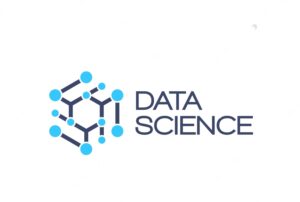The Rise
Data science is a rapidly growing field with applications in a wide range of industries. Data scientists use their skills in mathematics, statistics, programming, and machine learning to extract insights from large data amounts. Leveraging this data enables businesses to enhance operational efficiency, drive informed decision-making, and foster the development of innovative products and services. As the amount of data continues to grow, the demand for data scientists is expected to increase. Data scientists will be in high demand in a variety of industries, and they will play a critical role in helping businesses to succeed in the digital age.
Usefulness Towards Industry
Data science has emerged as a powerful tool for extracting insights and making informed decisions from vast volumes of data. Various industries have recognized the value of data science in improving operations, enhancing customer experiences, and driving innovation.
Here are some industries listed by the best web design company in Delhi that benefit significantly from data science, along with explanations of their applications:
Healthcare
It plays a crucial role in healthcare, enabling better patient care, disease prevention, and healthcare management. It helps in analyzing electronic health records (EHRs), medical imaging data, genomics, and clinical trial data to identify patterns, predict disease outcomes, personalize treatments, and optimize resource allocation.
Finance & Banking
In the finance industry, it is used for fraud detection, risk assessment, algorithmic trading, and customer analytics. By analyzing large volumes of financial data, data scientists can detect anomalies, develop credit scoring models, forecast market trends, and create personalized financial products based on customer behavior.
Retail & Ecommerce
It has transformed the retail and e-commerce sectors by providing insights into customer preferences, optimizing inventory management, and enabling targeted marketing campaigns. With data analysis, retailers can identify buying patterns, recommend personalized products, optimize pricing strategies, and predict demand to improve customer satisfaction and profitability.
Manufacturing & Supply Chain
It helps manufacturers enhance operational efficiency, optimize supply chain management, and reduce costs. By analyzing data from sensors, production lines, and logistics, manufacturers can identify bottlenecks, optimize production schedules, predict maintenance needs, and streamline inventory management to improve overall productivity.
Transportation & Logistics
It is vital for managing transportation networks, optimizing routes, and improving logistics operations. It enables the analysis of large volumes of data from sensors, GPS devices, and historical records to optimize fleet management, predict maintenance needs, reduce fuel consumption, and improve delivery times.
Energy & Utilities
It is instrumental in optimizing energy generation, improving grid management, and enhancing energy efficiency. By analyzing data from smart meters, sensors, and weather forecasts, data scientists can predict energy demand, optimize energy distribution, detect anomalies, and identify areas for energy conservation.
Telecommunications
The telecommunications industry benefits from data science by analyzing customer usage patterns, optimizing network performance, and enabling targeted marketing. Data scientists can analyze call detail records, network logs, and customer data to identify network bottlenecks, improve network capacity planning, detect fraud, and develop personalized marketing campaigns.
Insurance
It has transformed the insurance industry by enabling risk assessment, fraud detection, and personalized underwriting. By analyzing vast amounts of customer data, including demographics, claims history, and external factors, data scientists can develop predictive models, automate underwriting processes, detect fraudulent claims, and create personalized insurance offerings.
Marketing & Advertising
It helps marketers and advertisers gain insights into consumer behavior, target specific audiences, and optimize advertising campaigns. By analyzing customer demographics, online behavior, social media interactions, and campaign data, data scientists can identify effective marketing channels, personalize advertisements, and measure campaign performance.
Education
It is increasingly being used in the education sector to improve student outcomes, personalize learning experiences, and enhance educational programs, further added by an institute that offers the best web design course in Delhi. By analyzing student performance data, engagement metrics, and learning patterns, data scientists can identify areas for improvement, develop adaptive learning platforms, and provide personalized recommendations to students and teachers.
Government & Public Sector
It has significant applications in the public sector, including areas such as public health, transportation planning, crime analysis, and policy-making. By analyzing various datasets, such as population demographics, healthcare records, crime statistics, and transportation data, data scientists can identify patterns, make data-driven policy decisions, and optimize resource allocation for public services.
Agriculture
It has the potential to revolutionize the agriculture industry by enabling precision farming, crop yield optimization, and resource management. By analyzing data from sensors, satellite imagery, weather forecasts, and soil samples, data scientists can provide insights on optimal planting times, irrigation schedules, fertilizer usage, and disease detection, helping farmers improve productivity and sustainability.
Gaming & Entertainment
It plays a crucial role in the gaming and entertainment industry, enabling game developers and content creators to understand player behavior, personalize gaming experiences, and optimize game design. By analyzing player data, game telemetry, and user feedback, data scientists can improve gameplay mechanics, recommend personalized content, and create targeted marketing campaigns.
Human Resources
It is transforming HR practices by helping organizations make data-driven decisions in areas such as talent acquisition, employee engagement, performance management, and workforce planning. By analyzing employee data, feedback surveys, and performance metrics, data scientists can identify hiring trends, predict employee attrition, optimize workforce allocation, and improve employee satisfaction and productivity.
Real Estate
It is increasingly used in the real estate industry to analyze property data, market trends, and customer preferences. Data scientists can develop predictive models to forecast property prices, identify investment opportunities, optimize property management, and provide personalized recommendations to buyers and sellers.







Leave a Reply